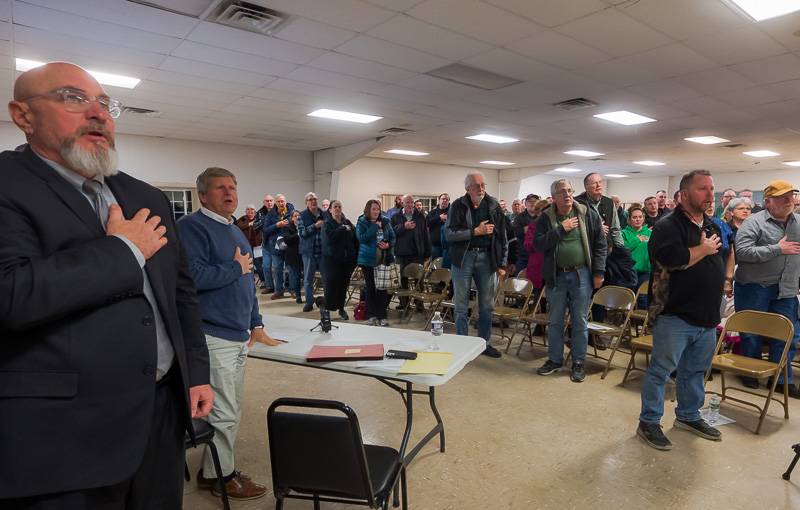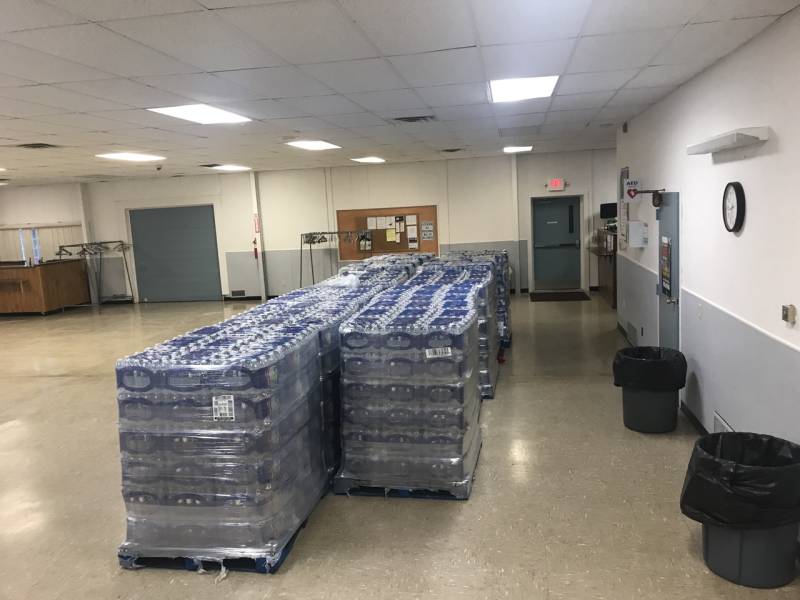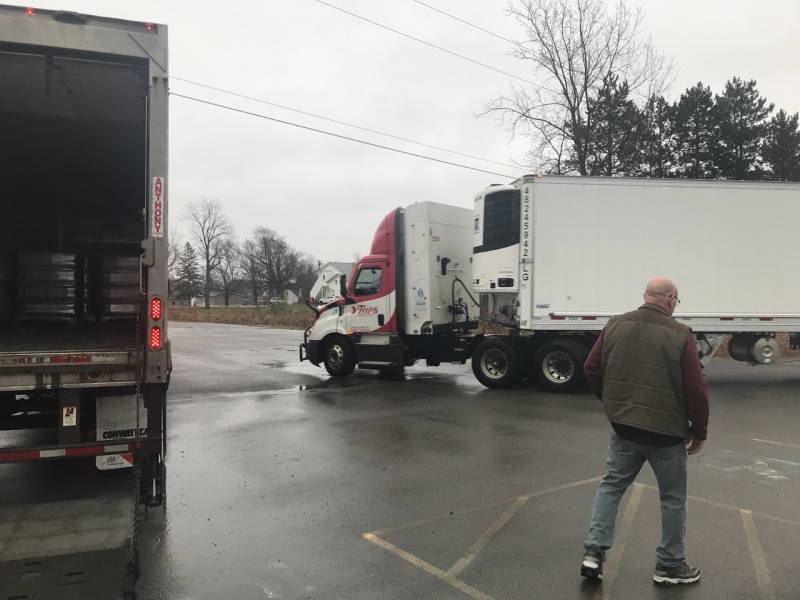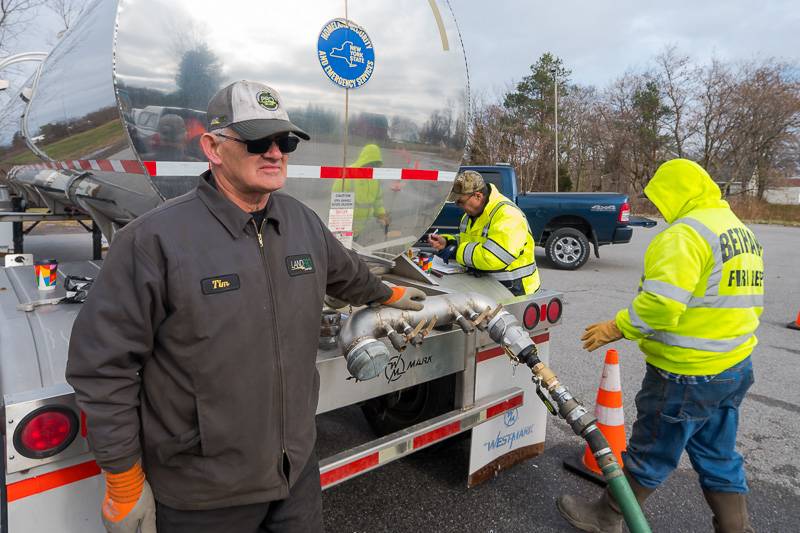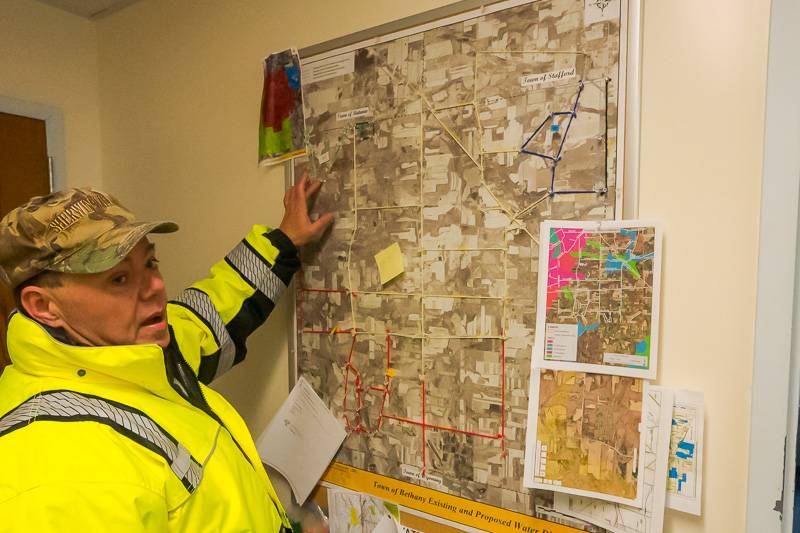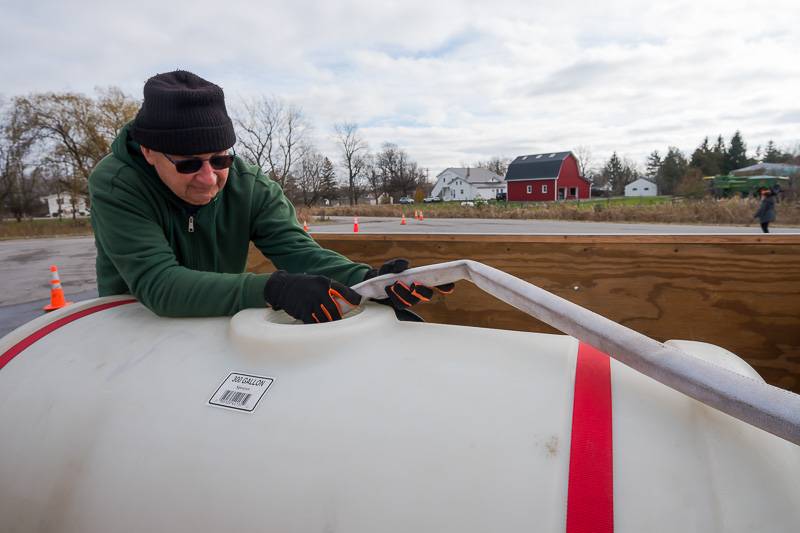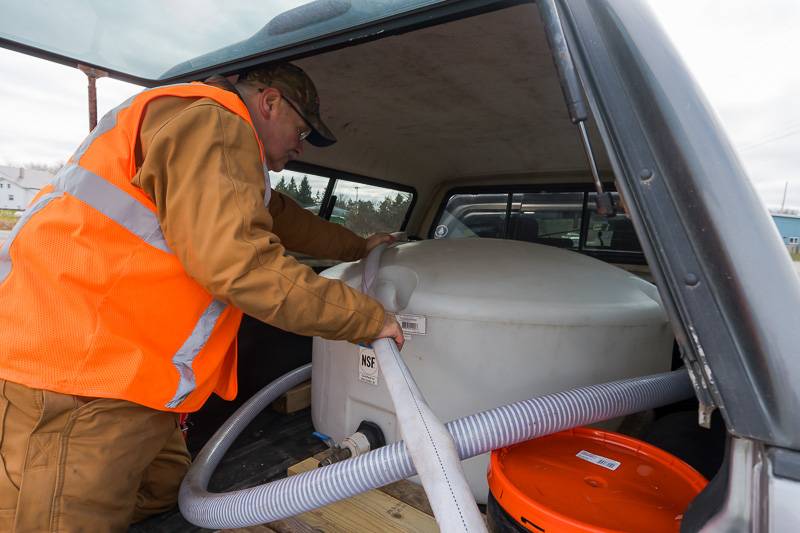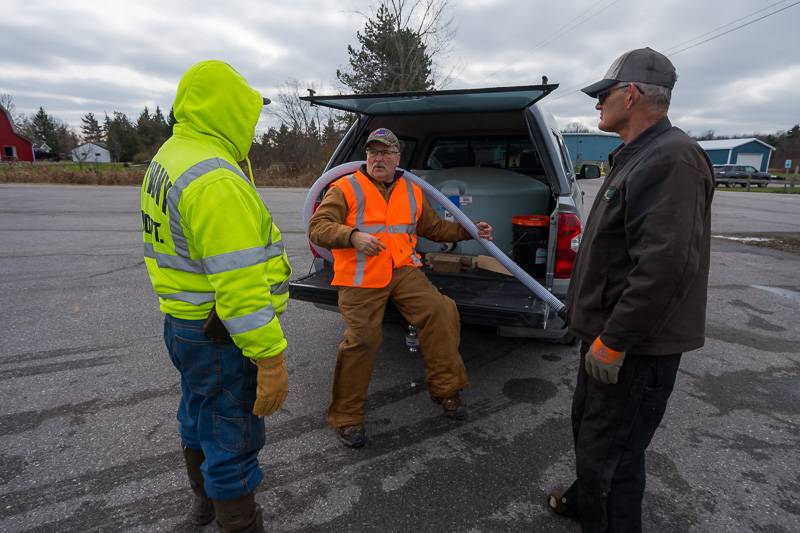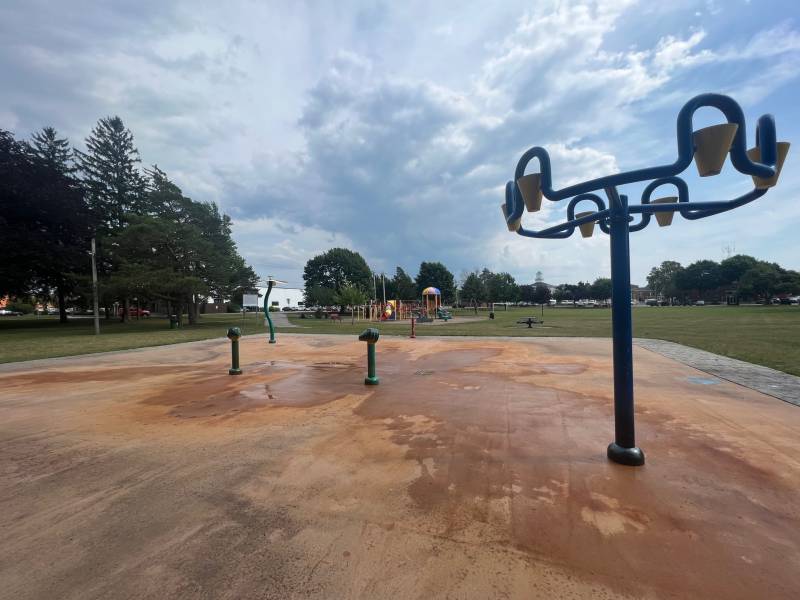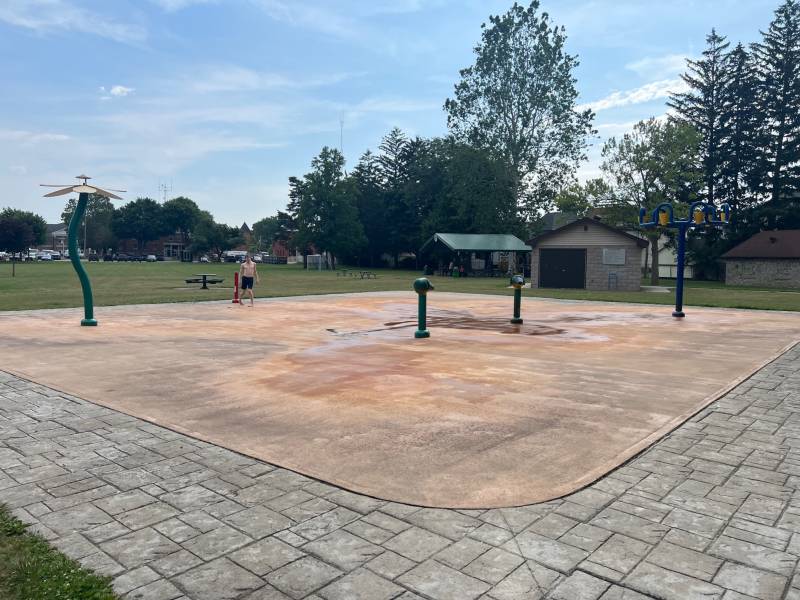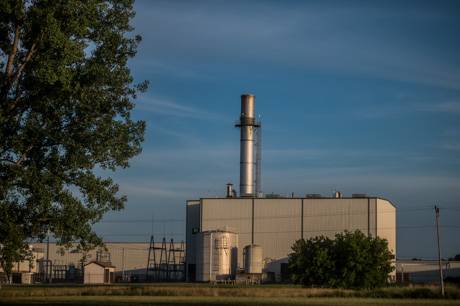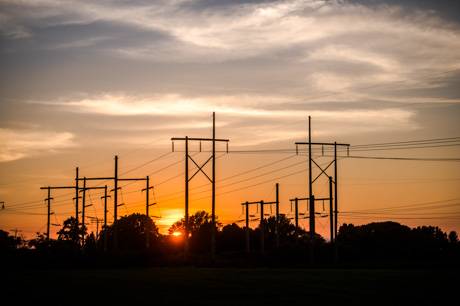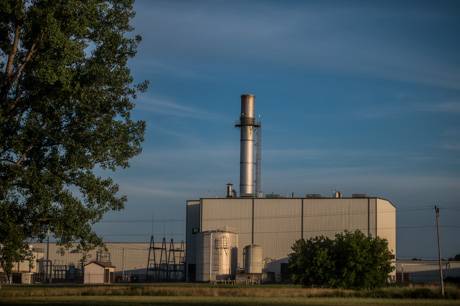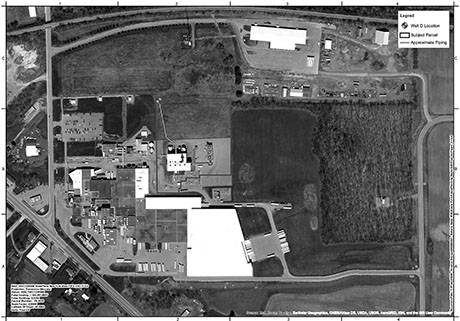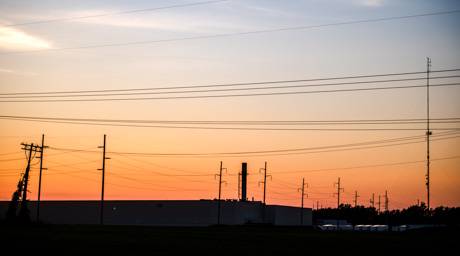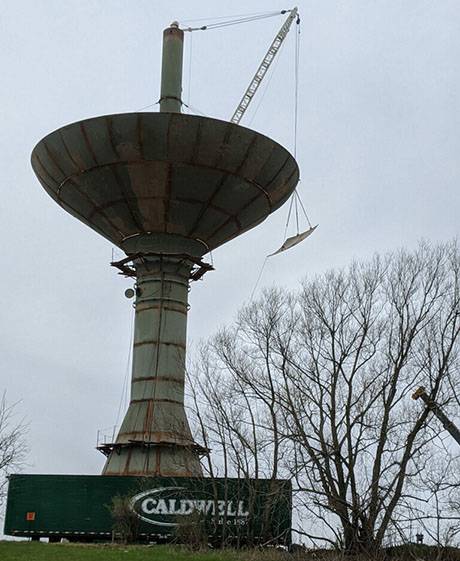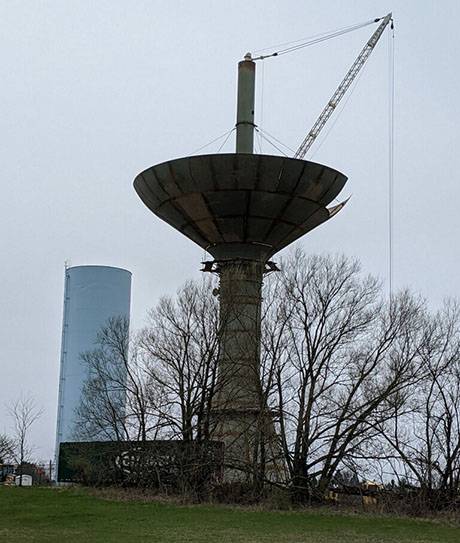Bethany drought creates support for Water District 5, dairy farm closure, future uncertainty
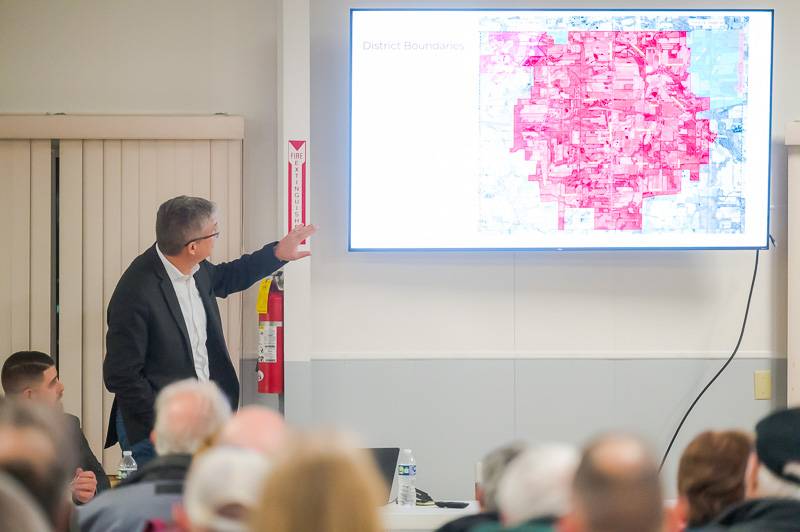
Photo by Howard Owens.
All but a few of about 200 residents were on board with creating Water District #5 in the Town of Bethany, and after the Town Board approved a resolution for a revised water district Wednesday evening, those property owners have 30 days to challenge the move or let it ride into the next phase of development, Supervisor Carl Hyde Jr. says.
The new Water District 5 is without Sweetland Road and a portion of Fargo Road that connects Clapsaddle Road to Stafford's existing water on Fargo Road because "Monroe County Water Authority will not allow us to hook up and run the water into their water system coming in from the west side of Bethany from the town of Batavia, which is a blend of Monroe County and water from the water treatment plant in Batavia," Hyde said.
“The town of Stafford is having a meeting on Monday,” he said, regarding the dozen homes removed from Bethany’s Water District 5. “They’re considered out-of-district users. They do not count for our water district.”
Wednesday’s meeting was to review all of those legal aspects and the important financial details of the plan — a $21,680,000 project funded with a $16 million 38-year low-interest loan (with annual debt service of $554,107), yearly payments from Genesee County and a $5 million state infrastructure improvement grant.
All of those numbers boil down to an estimated unit cost (unit = property) of $1,220. That cost doesn’t follow the property owner, as it remains at that property address.
What does this mean? Public water for 350 users, Hyde said. If none of them opposes or challenges this water district, then it goes on to the state Comptroller for review. After that, it would go to bid, “and then, hopefully, we should start digging in September,” Hyde said.
If someone opposes the plan, it will be brought to a vote, and 51 percent of the property owners must say yes in order for it to proceed. That opposition will also delay the process by 90 days.
“Now it’s just a waiting game; it’s all up to the residents. The board has done everything it can do,” he said. “I’m glad. The residents asked me to get the funding, and I got the funding.
“I do have some residents who have gotten a little bit of water back in their well. They were all excited because they could use their toilet twice a day. But I do still have a lot of people whose wells have not come back yet,” he said, sharing the worst news to come out of the drought so far. “One farm is no longer in the cattle business. Because the cost to haul water is not worth the price you pay for milk. He’ll be doing some crop farming but is retired from the cattle world. Dairy is Western New York’s largest commodity; when we start losing cattle farms, what else is there? The wells still aren’t recovered. After about 14 inches of snow, and it's gone, we've had no rain, and if we don't get snow, I am really afraid of what's going to happen this July and August.”
Hyde is especially worried about what to expect down the road once spring and then summer roll around again if winter continues to be this lackluster and rain still circumvents his town. The drought has been downgraded to moderate, which he thinks is “hooey.” And the long-range forecast in the Farmer's Almanac is "not good," he said, prompting him to make his own future plans.
“I’ve got residents still picking up water because they’ve got no water,” he said. “Hopefully, we can get the tanker back in the spring. Who’d have thought in the year 2024 in New York State that it’s a third-world country? Our homes may look a little better than theirs, but it’s a third-world country with no water.”
He’s counting on having made prior contacts with the state governor, Comptroller, and Office of Emergency Management, that there will be people to help out again later this year with a water tanker when possible. Emergency Management loaned a 6,700-gallon tanker to the town this past fall so that residents could fill their water totes for a month at Bethany Town Hall.
Meanwhile, at least 350 property owners can cling to another water district’s formation by this fall, once and if all gets approved, for a completion by 2026. That district would run down Townline Road north to Route 20 and be in the center of town. It has been a long time coming, with conception in 2017 and a USDA low-interest loan of $16.5 million. It was looking hopeful, and then COVID came along, and prices shot up for an escalated total project cost of $21.5 million. The town was turned down on its first attempt at a state $5 million grant to make up the difference, but fortunately received better news this past December, and now has the funding.
Property owners would be responsible for the pipe service to their homes, at about $15 to $25 per linear foot, which engineer Eric Weiss of Clark Patterson Lee estimated to be about $500 total, depending on the size of the property and circumstances. The cost of water would be about $6.48 per 1,000 gallons, for an estimated $388.80 per household. All of the debt service costs roll into the approximate yearly bill of $1,220 per property owner.
During the meeting, a resident asked what would happen to all of the trees along her property. The answer covered trees, flowers, driveways and other similar items on properties, and that was “we’re going to avoid as much destruction as possible,” Weiss said.
Contractors are given directions for how to navigate obstructions such as long tree roots. “They will excavate on either side and will push the pipe through it,” he said. As for other outdoor landscaping, “they will restore it to the way it was.”
A few folks didn’t like government-funded programs of any type, but by and large, the majority of attendees seemed in favor of proceeding with this water district.
"The residents are happy that it's moving forward," Hyde said.
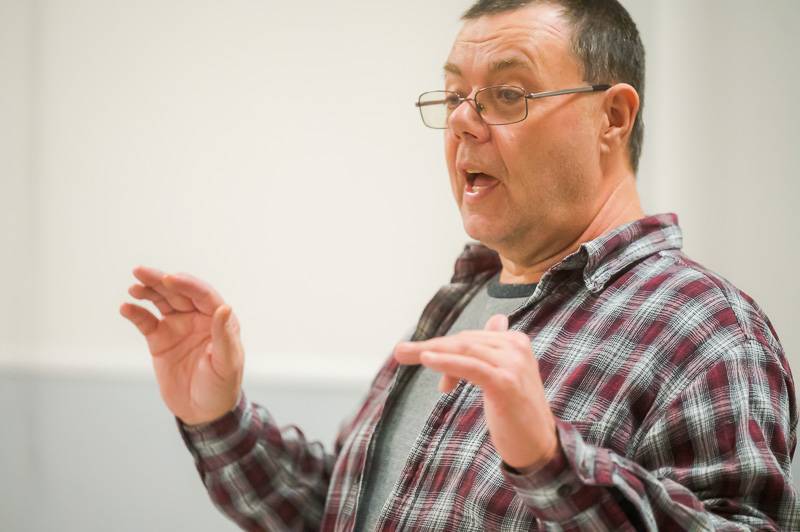
Photo by Howard Owens.
